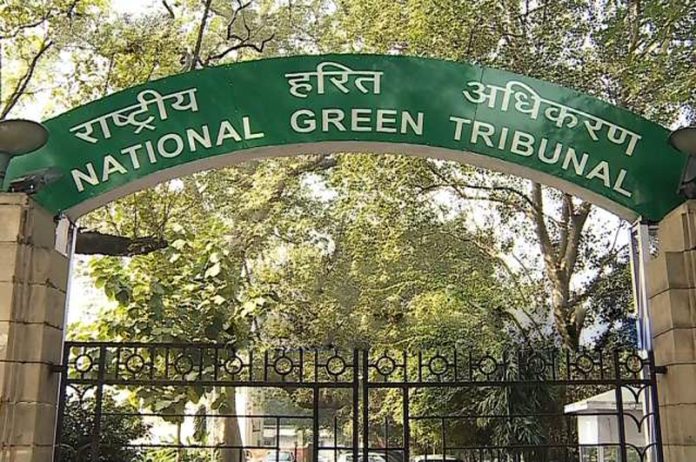Massive land sinking at Pernote in Ramban
Mohinder Verma
JAMMU, June 2: Taking suo-motto cognizance of reports highlighting massive land sinking at Pernote in Ramban district, the National Green Tribunal (NGT) has impleaded Chief Secretary of Union Territory of Jammu and Kashmir, Pollution Control Committee, District Magistrate Ramban and others as respondents and issued notices to them for filing response before September 17, 2024.
Follow the Daily Excelsior channel on WhatsApp
As the reports highlight substantial issue relating to compliance of the environmental norms, the NGT has exercised the power to take up the matter suo-motto, which has been recognized by the Supreme Court of India in the matter of “Municipal Corporation of Greater Mumbai Versus Ankita Sinha and Others”, read the order of Tribunal.
Apart from Chief Secretary, J&K Pollution Control Committee and District Magistrate Ramban, the Tribunal has also impleaded Central Pollution Control Board (CPCB) through its Member Secretary; Wadia Institute of Himalayan Geology, Dehradun through its Director; Govind Ballabh Pant National Institute of Himalaya and Environment, Almora through its Director; Ministry of Environment, Forest and Climate Change as respondents.
While issuing notices to all these respondents, the NGT Bench comprising Prakash Shrivastava (Chairperson), Arun Kumar Tyagi (Judicial Member) and Dr Afroz Ahmad (Expert Member) has directed them to file response at least one week before the next date of hearing—September 17, 2024.
“The reports highlight massive land sinking at Pernote village in Ramban district of Jammu and Kashmir that destroyed more than 58 houses and led to shifting of over 500 people to safer places. Four transmission towers besides a power receiving station and major portion of road linking Gool with Ramban town have vanished in the land subsidence”, the NGT noted.
“The reports mention that land sinking from last several years has emerged as one of the major environmental challenges in Jammu and Kashmir. The reports highlight the plight of the people who had to see their homes and lands vanishing due to land sinking”, the Tribunal said, adding “last year, a panel of the NGT, after conducting studies had recommended banning civil construction in the land subsidence-hit area in Doda district. Many other areas in J&K including Budgam district and Duksar village in Ramban district are also prone to land sinking”.
It has been observed by the experts that increasing human activities and haphazard construction are responsible for triggering the soil erosion and land sinking. Massive construction activities including road expansions and construction of tunnels in eco-fragile zones in various areas of J&K are also the causes behind the grave issue.
They have further observed that development of buildings and settlements on unconsolidated materials and narrow valleys is going on unabated. Deforestation, unscientific road construction and terracing and encroachment on steep hill slopes have increased intensity of the landslides.
“If these activities are conducted without Environmental Impact Assessment (EIA), these are bound to disturb eco-system. Doda and Ramban districts are among the most eco-fragile areas in J&K due to unique geoclimatic conditions. Chenab Valley housing huge dams is also prone to natural disasters. The Srinagar-Jammu National Highway frequently gets closed due to landslides, especially in Ramban district”, the NGT has mentioned in the order while referring the news reports.
It is pertinent to mention here that a team of experts from the National Disaster Management Authority (NDMA) deputed by Union Ministry of Home Affairs conducted comprehensive survey of land subsidence affected area Pernote last month.
Led by Chief Scientist Prof D P Kanungo from CBRI, the technical expert committee, comprising Dipali Jindal and Ranu Chauhan from NDMA, Vivek Coelho from UNDP and Dr Ravinder Singh from NIDM will submit a comprehensive report to the Ministry suggesting measures for the sustainable development of the area.
Moreover, the team will propose precautions to prevent future losses caused by mudflow slides and suggest feasibility of habitation and agricultural activities in the future.


